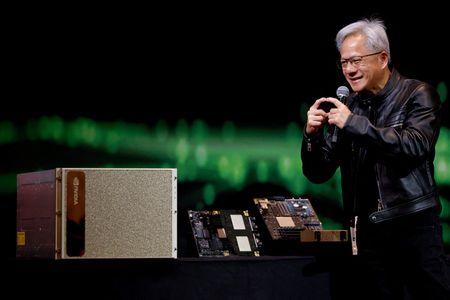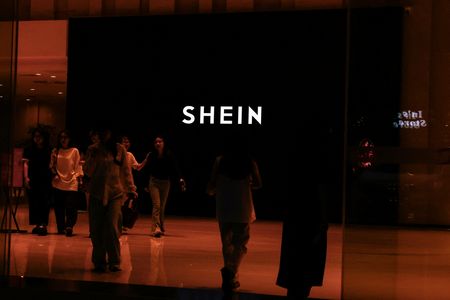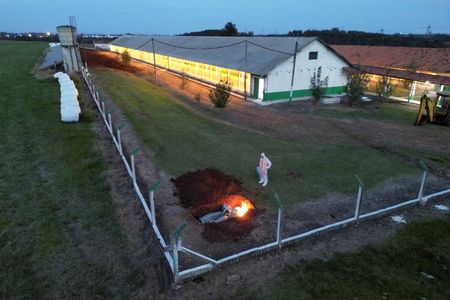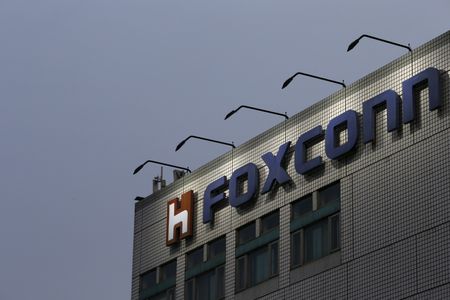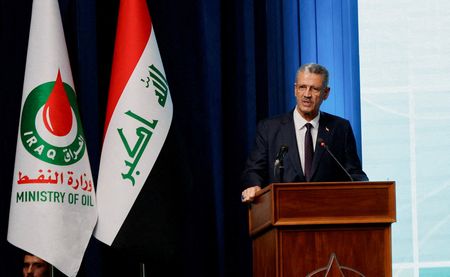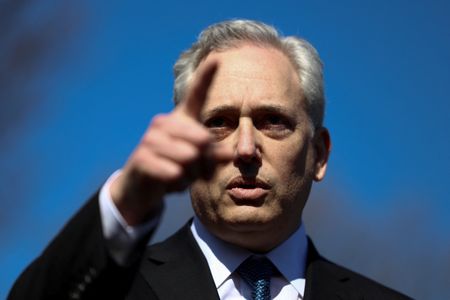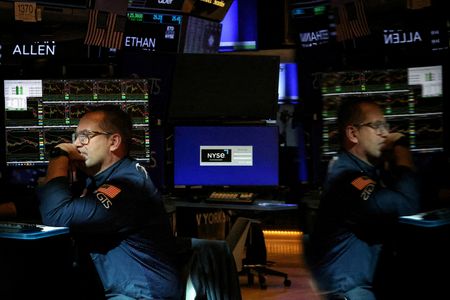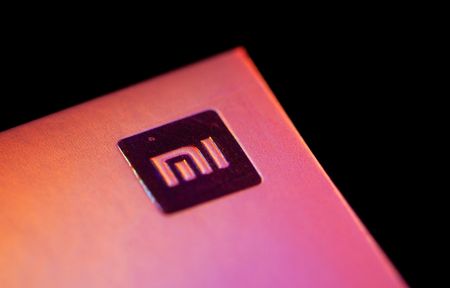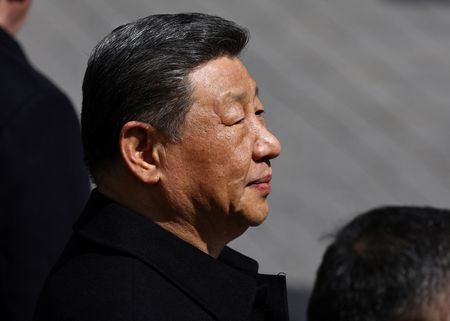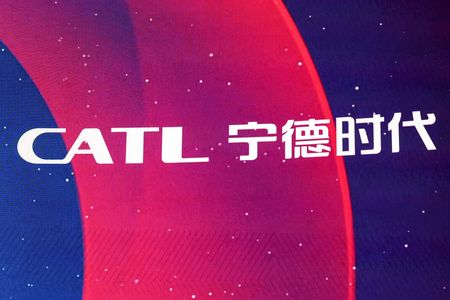By Max A. Cherney and Wen-Yee Lee
TAIPEI (Reuters) -Nvidia CEO Jensen Huang flew out of Taipei on Friday after a week revelling in the adoration of Taiwan’s tech industry, and delivering a subtle but crucial message from the U.S. AI chip king on how it plans to keep its crown.
While ‘Jensanity’ swirled around Huang at the Computex trade fair, Nvidia itself was at a crossroads. Having grown to become the world’s most valuable chip company, investors fear a drop in spending on artificial intelligence infrastructure as well as damage to sales from U.S. trade friction.
U.S. restrictions on high-tech exports have seen Nvidia lose market share in China as it withdraws chips and designs inferior alternatives compliant with evolving U.S. policy.
Now, cloud computing giants such as Microsoft and Alphabet’s Google have signalled cuts to AI spending. And while the 62-year old CEO has in the past month announced deals worth hundreds of billions of dollars in regions such as the Gulf, analysts said such deals are likely to become scarce.
“Is every country going to announce a $10 billion or $50 billion data centre like the Saudis? Of course not,” said Seaport Research analyst Jay Goldberg. “They’re sort of running out of obvious deals.”
When asked by Reuters how Nvidia planned to deal with AI spending slowdown, Huang said, “AI infrastructure is being built out (everywhere) – that’s one of the reasons I’m travelling around the world… AI infrastructure is going to be a part of society.”
NEW GROWTH
At Computex, Huang revealed a means of growth that does not rely on mega sovereign infrastructure arrangements: new technology that expands Nvidia’s grip on the AI market.
The tech’s centrepiece is called NVLink Fusion. It allows companies to plug custom chips into Nvidia’s AI infrastructure, thereby becoming a platform upon which others can build.
“Instead of having to build the entire rack of equipment themselves, (companies) could innovate or differentiate on the custom (chip) itself,” said Nick Kucharewski, vice president at Marvell Technology.
The bet is that drawing companies to build hardware that utilises Nvidia’s Fusion platform will drive demand for the underlying AI network and data centre parts that Nvidia sells.
Nvidia has also begun to reach into the enterprise market. This week, it launched a line of servers that Huang described as an “enterprise AI supercomputer”.
Huang’s pitch was that the servers open up a multi-billion dollar market because customers can use them for “everything”, such as graphics, virtual machines and AI applications.
The enterprise market is large but difficult to break into, said Seaport Research’s Goldberg. Deals tend to be small – compared with a sovereign data centre – and more expensive and time-consuming to win.
“My sense is we’re sort of bumping up against the limits of expanding the customer base,” Goldberg said.
TAIWAN ECOSYSTEM
Nvidia works with some of Taiwan’s biggest names in tech, such as Taiwan Semiconductor Manufacturing Co, which makes many of its chips. However, the underlying infrastructure for AI would not be possible without the hundreds of Taiwanese companies big and small supplying components and manufacturing know-how needed to construct Nvidia’s complex AI systems.
“The purpose of Computex was to bring together the ecosystem and the supply chain,” said Ian Cutress, chief analyst at consultancy More Than Moore.
Such a network is necessary to support the deals announced in the Gulf and that are likely coming elsewhere in the world in the coming months, Cutress said.
Taiwanese industry has embraced Huang, who is perceived as a local-born hero hailing from Taiwan’s historic capital of Tainan before migrating to the U.S. when he was nine years old.
By the time he flew out on Friday, Huang had appeared on stage or at banquets with nearly every prominent Taiwanese tech executive, including Chairman Young Liu of AI server builder Foxconn who called him the “leader of Team Taiwan”.
MediaTek CEO Rick Tsai gave Huang chunks of guava in a plastic bag from the Nvidia leader’s favoured fruit stall in Taipei during one of the chip designer’s events.
Solomon Technology, a provider of industrial automation and AI-based inspection solutions which uses Nvidia’s software tools, said working with Nvidia is a win-win situation.
Shares of Solomon have surged 241% since Huang mentioned the firm at Nvidia’s GPU Technology Conference in March last year.
“The collaboration with Nvidia has given us greater visibility. We weren’t very well-known before, but with Nvidia’s support, many more people know us now,” said Solomon Chairman Johnny Chen.
(Reporting by Max A. Cherney and Wen-Yee Lee in Taipei; Editing by Brenda Goh and Christopher Cushing)

